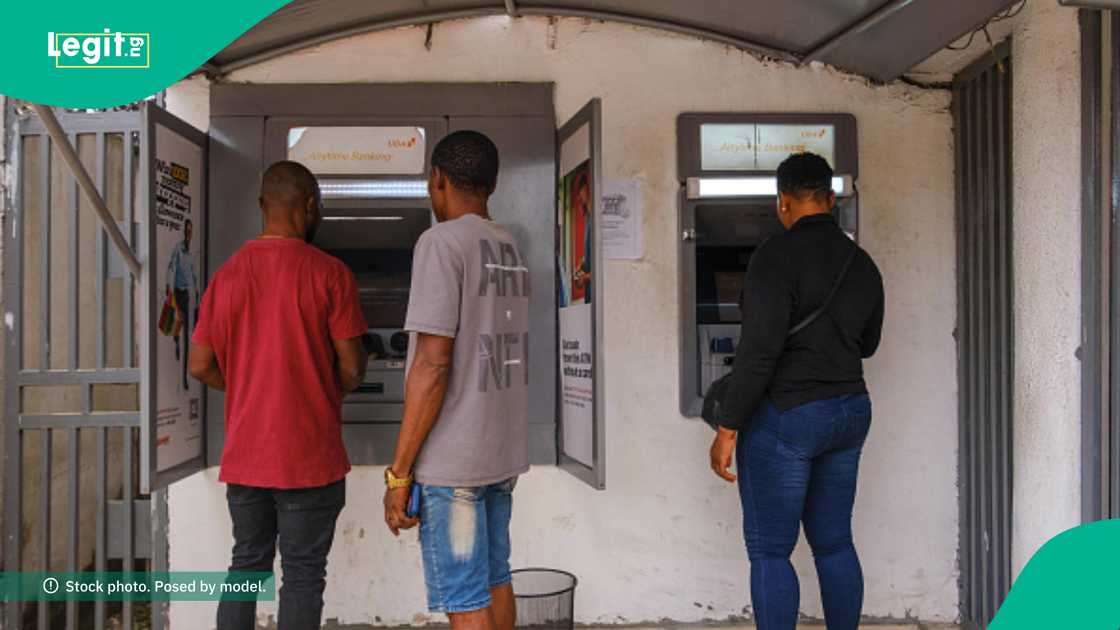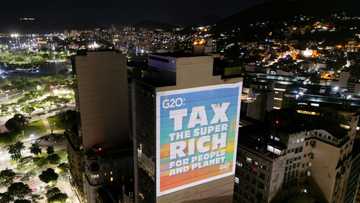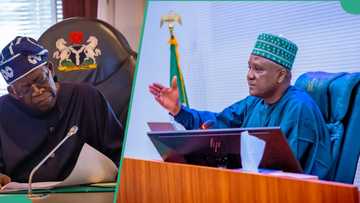Forex: Nigerian Banks' Executives Call for Decrease in Windfall Tax
- Some banks' CEOs are lobbying President Bola Tinubu on the 70% required windfall tax payment on profits
- They are advocating a decrease in the windfall tax imposed on realised foreign exchange gains and are in talks with government representatives
- Despite their announcement four months ago, the banks have not yet sent the government a single naira
Legit.ng journalist Zainab Iwayemi has 5-year-experience covering the Economy, Technology, and Capital Market.
Seven Deposit Money Bank officials are actively pressing President Bola Tinubu on the 70% windfall tax payment on the banks' earnings from foreign exchange transactions.

Source: Getty Images
The bank executives, who are also in talks with government representatives, are calling for a reassessment or a decrease in the windfall tax that is imposed on the banks' realized foreign exchange gains as a result of the naira's devaluation last year.
According to the recently published 2025–2027 Medium Term Expenditure Framework and Fiscal Strategy Paper, the banks have not yet sent the government a single naira, even though this was announced four months ago.

Read also
‘Beginning with Batch C’: Tinubu’s govt finally lifts ban on NYSC members serving in banks, others
President Tinubu implemented a one-time windfall tax in mid-July in order to address the significant foreign exchange gains that banks reported in 2023.
Under his Renewed Hope Agenda, he sought to raise more money for important infrastructure, healthcare, and education initiatives by proposing this tax as part of a modification to the 2023 Finance Act.
A windfall tax is a higher tax that the government imposes on industries or companies that have profited disproportionately from favorable market circumstances.
Sources give update
A top government official close to the situation told the Punch that the government is expecting to earn N1 trillion from the remitance, despite an examination of the bank's financial statement projecting that the government will collect over N425 billion from seven banks.
The source revealed that lobbying efforts had been underway for months, yet President Tinubu has refrained from offering a clear stance on the issue, leaving stakeholders uncertain about the government's position and direction. Speaking on condition of anonymity, the source explained they were not authorized to address the media on the matter.
This was even after a private meeting on July 31, 2024, with a group that included Mr. Tony Elumelu, the chairman of the United Bank for Africa, and Ladi Balogun, the group chief executive officer of First City Monument Bank.
According to the official, the prolonged conversations are a result of the impacted institutions' unwillingness to pay the authorized sum.
The source said,
“Bank chiefs have been going to the Presidency to lobby the President and other top officials to reduce the tax.
“Banks were shocked when the National Assembly raised the tax to 70 per cent to the Federal Government, and 30 per cent to banks. So, the banks are not willing to pay 70 per cent of the forex gain tax to FG. Remember it is a one-off tax. This was the reason the Finance Act had to be amended.”
How windfall tax can fuel Nigeria’s infrastructure
Legit.ng earlier reported that despite economic headwinds, Nigerian banks have consistently recorded substantial profits, even during economic downturns, hitting N1.07 trillion in 2022.
This resilience, while commendable, has sparked discussions about the role these financial giants should play in national development, particularly in a country where infrastructure, healthcare, and education are in dire need of revitalisation.
Francis Nnanyelu, an Abuja based public affairs analyst discloses the importance of the tax on the Nigerian economy.
Proofreading by James, Ojo Adakole, journalist and copy editor at Legit.ng.
Source: Legit.ng




